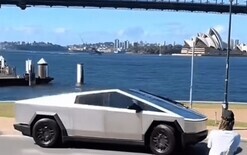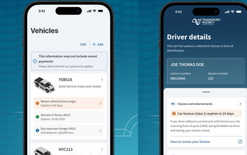The future for NZ vehicles
With the majority of vehicle manufacturers working on autonomous technology, it is no surprise that self-driving vehicles are part of the future. This month, Tesla surpassed Ford and General Motors in terms of market value and Daimler and Bosch announced a partnership for developing new autonomous vehicles in the future. With the emergence of more Uber-type services where cars are ordered to your door, it won't be long before these cars don't need to be driven by a human being. In fact the future could include driverless cars picking you up from your destination, dropping you off and waiting for you until you are ready to come back. At present, Uber and Lyft plan to include automated vehicles into their fleet in the long term. "Studies in the US have suggested that the needs of urban areas could be met with a fleet of 10 per cent of current sizes, assuming a fleet of autonomous vehicles is always on the move. Of course, this change is likely not to occur overnight, but considering the fact that most experts say it will happen, it is important that the industry will be involved," Policy advisor and analyst of IMVIA Kit Wilkerson told Autofile in 2016. When it comes to keeping these future vehicles running, the need for petrol stations will slowly become obsolete as the vehicles will be powered by electricity. New Zealand has the ability to power these new electric stations in a sustainable manner and that is the goal for the future. Senior Advisor of Communications for the Energy Efficiency and Conservation Authority (EECA), Rachel Dahlberg, told Autofile that the transition to electric and autonomous vehicles will also help reduce emissions from transport and therefore reduce environmental impact. With the emergence of autonomous vehicle technology, traffic jams should be reduced thanks to the ability for autonomous vehicles to communicate with each other via sensors. According to the Government's ITS Technology Action Plan, the country is an excellent testing-ground for autonomous vehicles. With one of the advantages being that NZ does not explicitly require a vehicle to have a driver present for it to be used on the road. In fact, a driverless trial took place in Tauranga last November as part of Trafinz’s National Transport Conference. Transport Minister Simon Bridges said at the time, “This will be the first trial of its kind in New Zealand and reflects our world-leading regulation around autonomous vehicles, which encourages new technology, while protecting public safety." As far as the future is concerned, autonomous vehicles are set to take over the roads, with Ford stating that fully autonomous vehicles should be on the road by as early as 2021.





